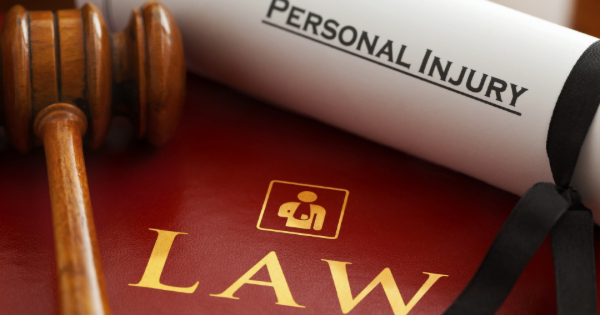
When You Should Find a Personal Injury Attorney
October 16, 2019
Medical Malpractice: How to Back Up Your Claim
November 5, 2019In the U.S., personal injury cases contribute to a significant proportion of civil litigation proceedings. According to the Department of Justice, product liability (5%), medical malpractice (15%), and motor vehicle accidents (52%) are the biggest contributors to such cases.
For medical malpractice suits, annual payouts are in billions, and on average, there is a payout every hour. This is a clear indication of the number of people who suffer personal injury at the hands of negligent doctors and hospitals.
If you or a loved one has been a victim of medical malpractice, you may be eligible for compensation. However, there are some things you should know and some steps to follow. Consider these steps before you continue with a medical malpractice case.
1. Determine Whether You Are Within the Statute of Limitations
Some types of cases — including personal injury cases — have a time limit within which someone can take legal action. This is what is referred to as a statute of limitations. Once this period is over, you will not be able to seek legal recourse.
Statutes of limitations vary from state to state. In Idaho, for instance, medical malpractice suits can only be filed within a two-year period after the incident.
2. Consult a Medical Malpractice Attorney
Once you decide to take action against a medical facility or doctor, your first step should be to seek an experienced Boise medical malpractice attorney.
An attorney will help determine the validity of your claims and provide necessary guidance on your case. It is vital that you get in touch with an attorney early; this will give you ample time to prepare for the case before the statute of limitations kicks in.
3. Determine Who Is Liable
There are situations where hospitals may not be liable for your injury, even if it occurred on their premises. This is because many doctors work on a contract basis and are not hospital employees. As such, the hospital may be exempt from liability and you will have to target the doctor who performed the act of negligence.
The hospital can only be liable if
- The doctor or nurse accused of negligence is an employee
- The hospital already noticed a contracted doctor’s negligence and still hired them
It is important to determine whether it is the doctor or hospital that is liable for the malpractice. In some cases, it may be difficult to determine liability since other parties, such as nurses, may have been involved. For such scenarios, make sure to include every party in the suit as alterations may not be possible later.
4. Determine the Value of Your Claim
The value of personal injury claims varies from one case to the next and depends on several factors such as…
- Physical pain and suffering
- Mental anguish
- Past and future wages lost
- Effect on lifestyle such as the ability to enjoy hobbies
- Losses suffered by family and friends
5. Initiate the Pre-Suit Procedures
Accusing a doctor or hospital of medical malpractice is a serious claim. As such, before you can file the suit formally, there are some steps to consider that vary state by state. For example, you may be required to file an affidavit of merit with a qualified medical practitioner seconding the legitimacy of your claim.
Before filing in court, the patient may also be required to file and present the claim to a medical review board. Depending on their assessment of your complaint, you may be offered a settlement.
6. File the Claim
This step should only come after you have complied with all procedural requirements, and the pre-trial settlement offer is unsatisfactory. Along with the names of all the parties responsible, your complaint should a detailed account of the incident, the extent of the injury, losses incurred, and expected compensation. You can always gain help from an experienced personal injury attorney in Boise to help you create a case.
Contact Rossman Law Today
Personal injury caused by a botched medical procedure or negligent act can have serious life-altering or ending implications. As such, it should be taken with the utmost seriousness.
Disclaimer. The information on this blog post is not and should not be taken to be legal advice from Rossman Law Group. Consult a medical malpractice attorney for more information on your specific situation.





